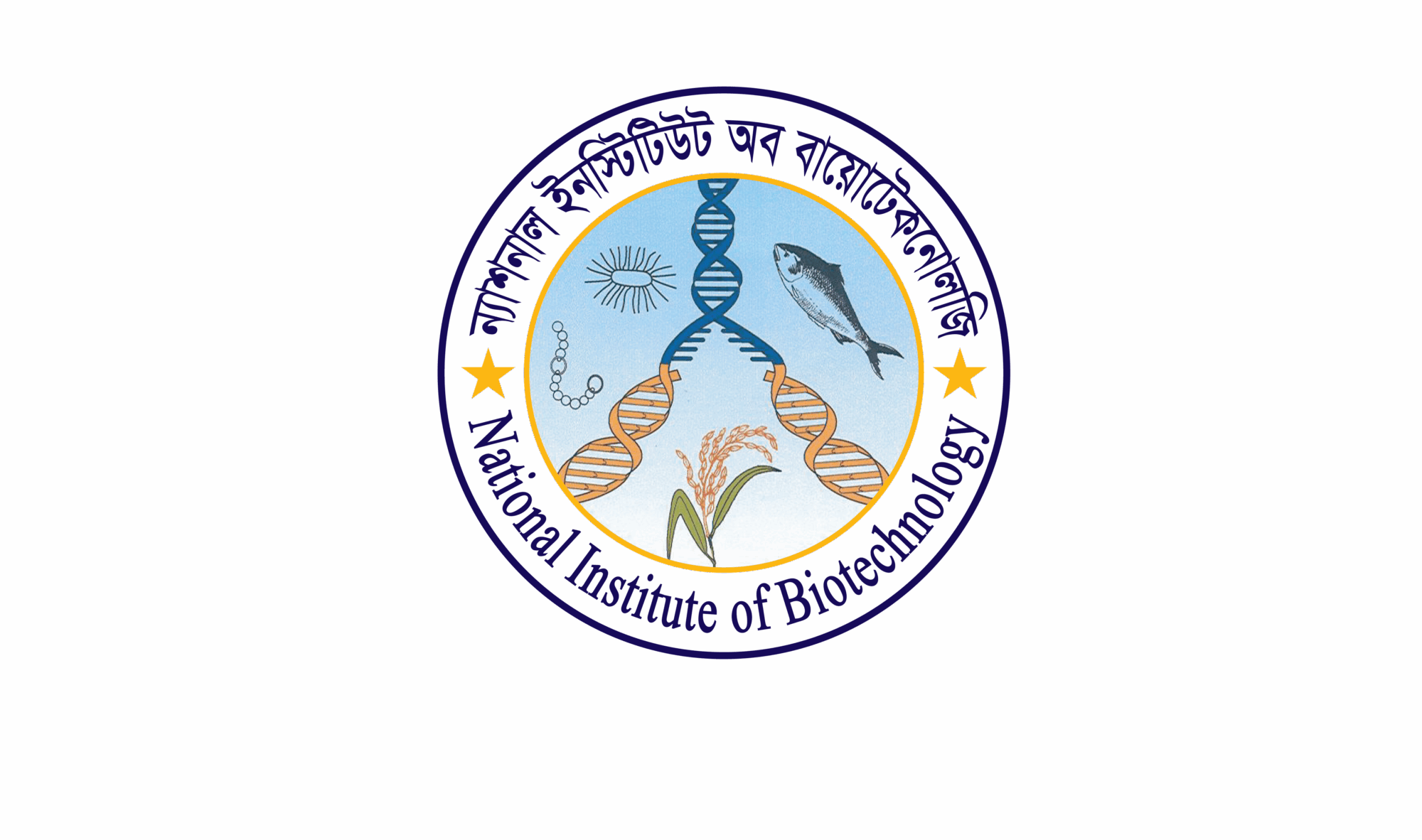In 2024, the National Institute of Biotechnology (NIB) in Bangladesh made significant strides in biotechnological research, focusing on critical areas such as microbial resistance and the human gut microbiome. One notable study identified nine potential therapeutic targets against Cronobacter sakazakii, a bacterium known for causing severe infections in infants, highlighting the potential repurposing of the FDA-approved drug Terbinafine as a treatment option. Another pioneering project provided the first comprehensive analysis of the gut microbiome among various Bangladeshi ethnic groups, revealing distinct microbial compositions between hill tribes and Bengali populations, thereby establishing a foundational dataset for future health-related research. These studies underscore NIB’s commitment to addressing pressing health challenges through innovative research. Web of Science
The leading areas of research publication categories in the TreeMap:
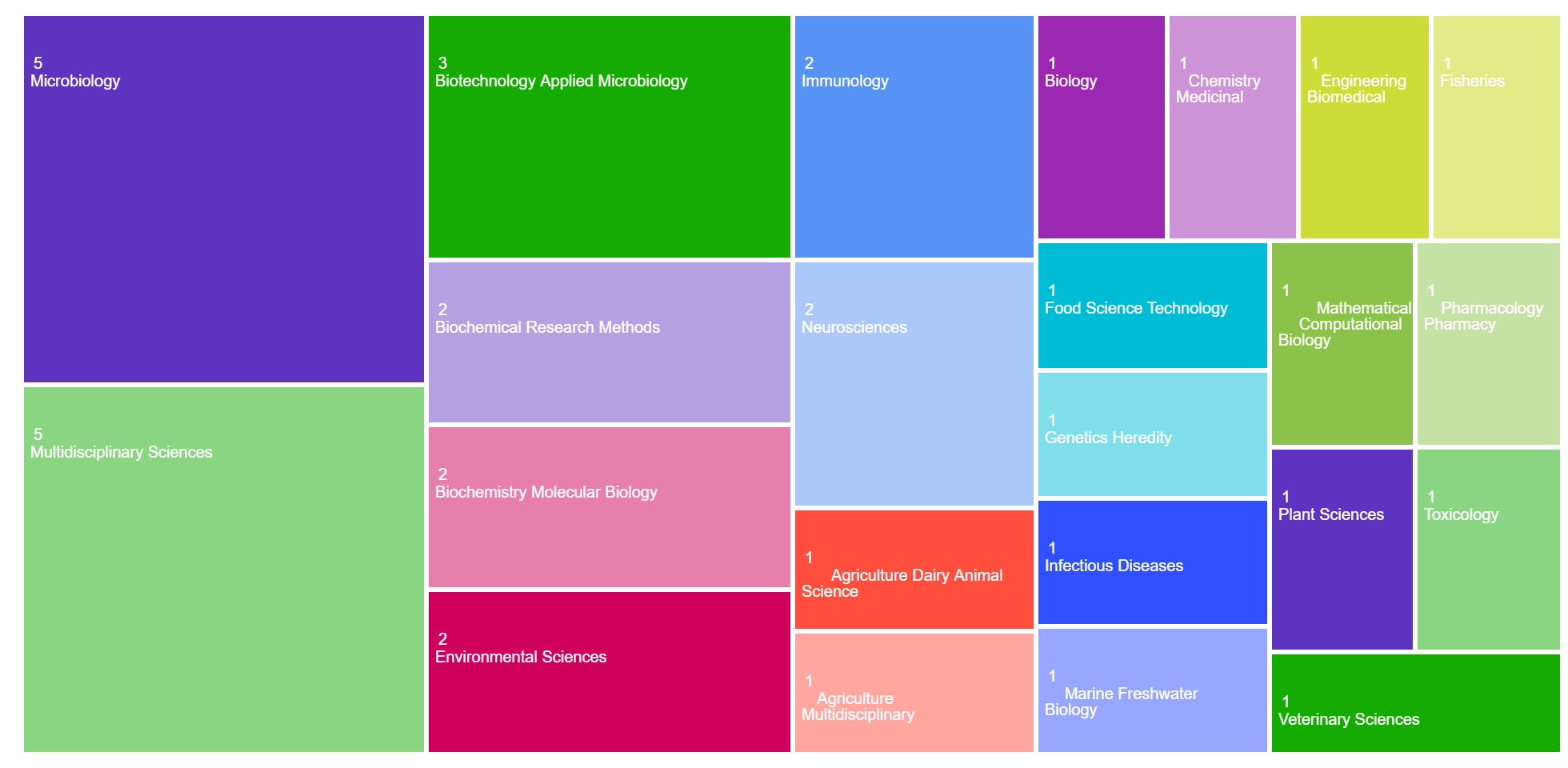
Contributions in the field include:
| Categories | Record Count | % of 25 |
|---|---|---|
| Microbiology | 5 | 20.000% |
| Multidisciplinary Sciences | 5 | 20.000% |
| Biotechnology Applied Microbiology | 3 | 12.000% |
| Biochemical Research Methods | 2 | 8.000% |
| Biochemistry Molecular Biology | 2 | 8.000% |
| Environmental Sciences | 2 | 8.000% |
| Immunology | 2 | 8.000% |
| Neurosciences | 2 | 8.000% |
| Agriculture Dairy Animal Science | 1 | 4.000% |
| Agriculture Multidisciplinary | 1 | 4.000% |
| Biology | 1 | 4.000% |
| Chemistry Medicinal | 1 | 4.000% |
| Engineering Biomedical | 1 | 4.000% |
| Fisheries | 1 | 4.000% |
| Food Science Technology | 1 | 4.000% |
| Genetics Heredity | 1 | 4.000% |
| Infectious Diseases | 1 | 4.000% |
| Marine Freshwater Biology | 1 | 4.000% |
| Mathematical Computational Biology | 1 | 4.000% |
| Pharmacology Pharmacy | 1 | 4.000% |
| Plant Sciences | 1 | 4.000% |
| Toxicology | 1 | 4.000% |
| Veterinary Sciences | 1 | 4.000% |
Research areas:
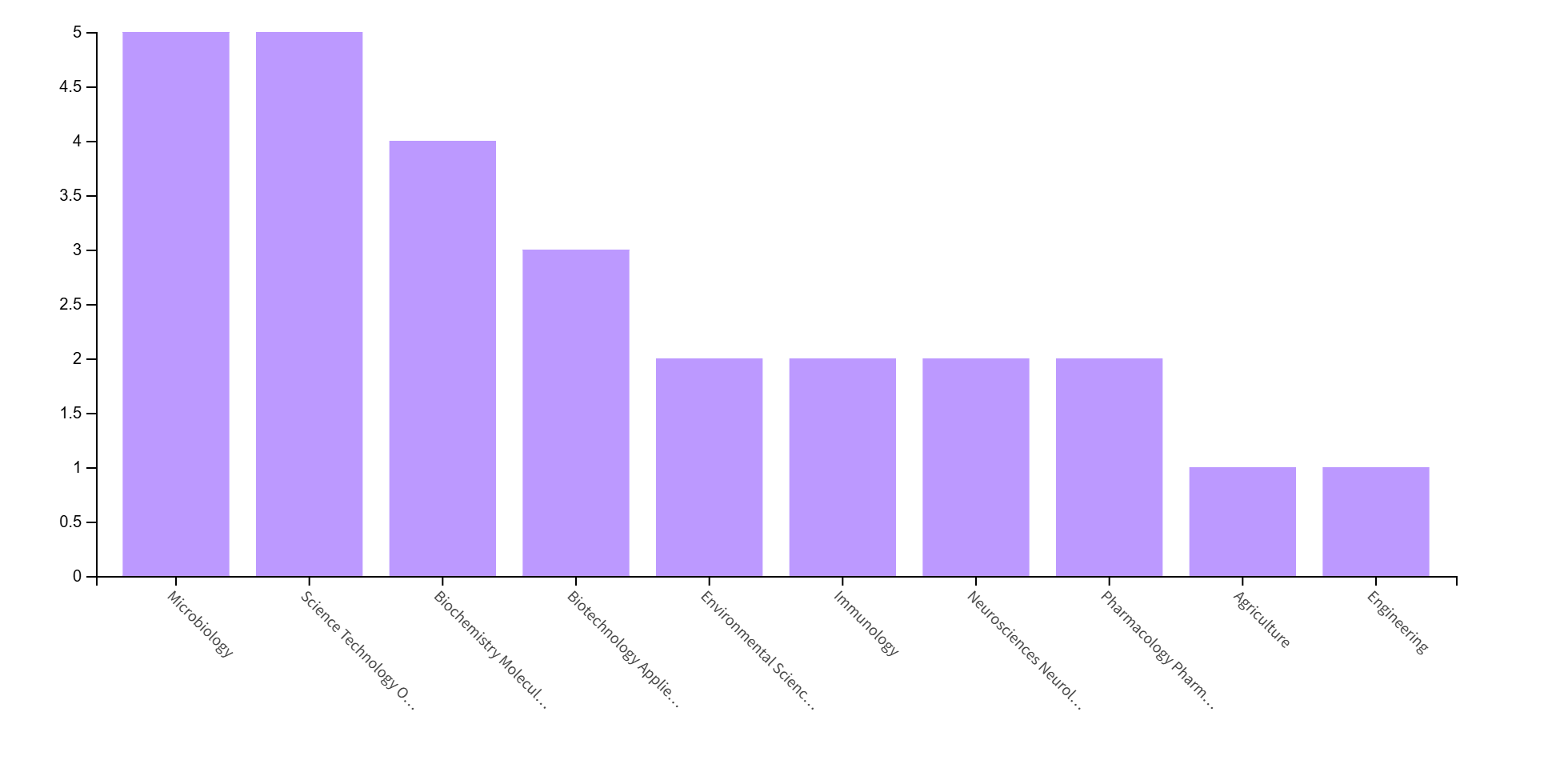
Types of published documents:
| Types | Record Count | % of 25 |
|---|---|---|
| Article | 25 | 100.000% |
| Data Paper | 1 | 4.000% |
Authors’ infographic:
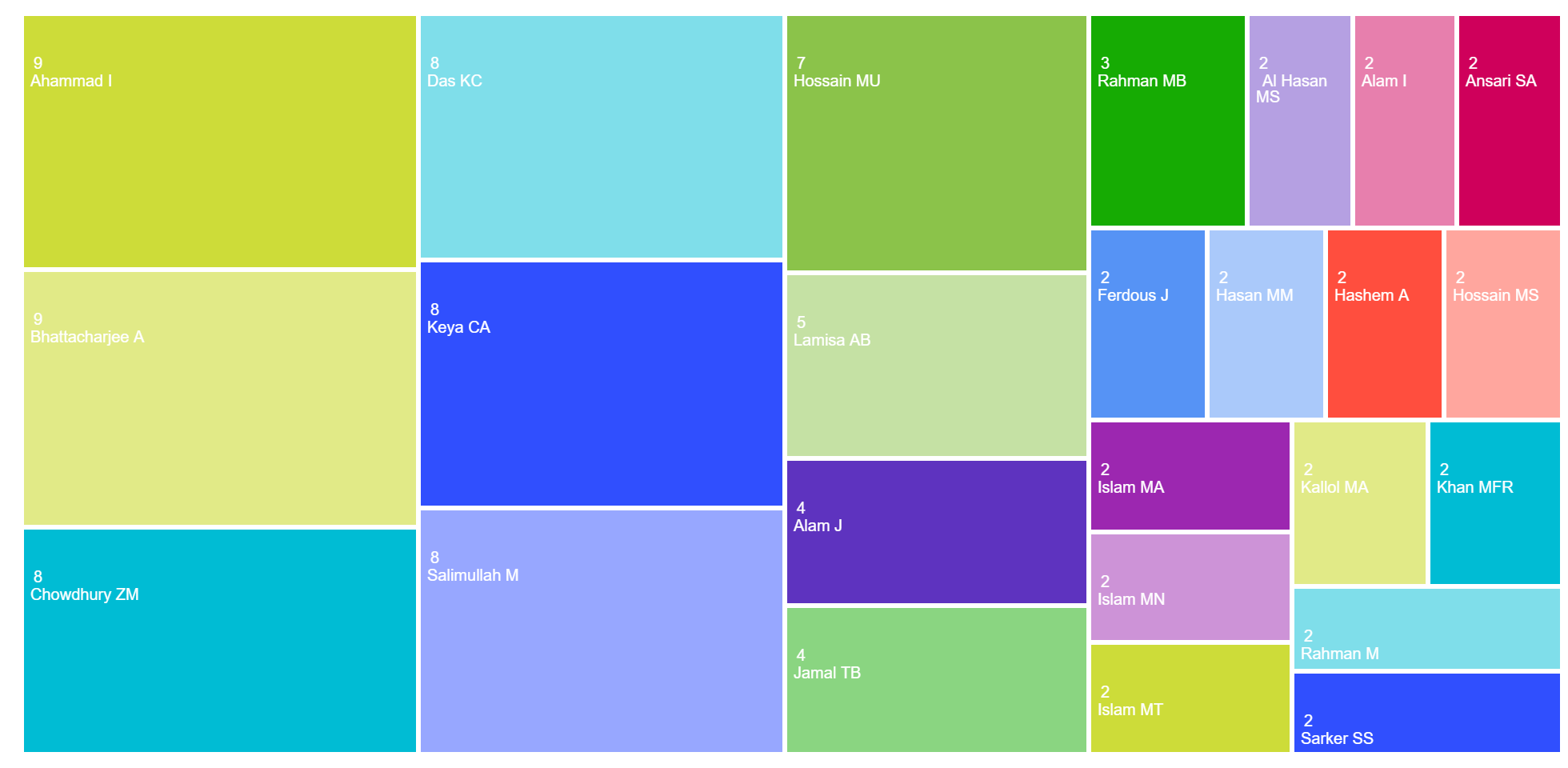
Researcher profiles:
| Researcher | Record Count | % of 25 |
|---|---|---|
| Ahammad, Ishtiaque | 9 | 36.000% |
| Bhattacharjee, Arittra | 9 | 36.000% |
| Salimullah, Md | 8 | 32.000% |
| Chowdhury, Zeshan Mahmud | 8 | 32.000% |
| DAS, KC | 8 | 32.000% |
| Keya, C. A. | 8 | 32.000% |
| Hossein, Mohammad | 7 | 28.000% |
| Lamisa, Anika Bushra | 5 | 20.000% |
| Jamal, Tabassum | 4 | 16.000% |
| Alam, Jahangir | 3 | 12.000% |
| Sharmin, Shamima Akhtar | 2 | 8.000% |
| Alam, Iftekhar | 2 | 8.000% |
| Rahman, Md Mahfuzur | 2 | 8.000% |
| Ansari, Siddique Akber | 2 | 8.000% |
| Rahman, M. | 2 | 8.000% |
| Sarker, Shashanka Shekhar | 2 | 8.000% |
| Al Hasan, Md. | 2 | 8.000% |
| Kallol, Md. Arefin | 2 | 8.000% |
| Ferdous, Jannatul | 2 | 8.000% |
| Islam, Md Amirul | 2 | 8.000% |
| Khan, M. F. R. | 2 | 8.000% |
| Hashem, Dr. Abu | 2 | 8.000% |
| Rahman, A. F. M. Motiur | 1 | 4.000% |
| Siddique, Md. Abu Bakar | 1 | 4.000% |
| Rahman, Mizanur | 1 | 4.000% |
Research affiliations of NIB with other universities and institutes:
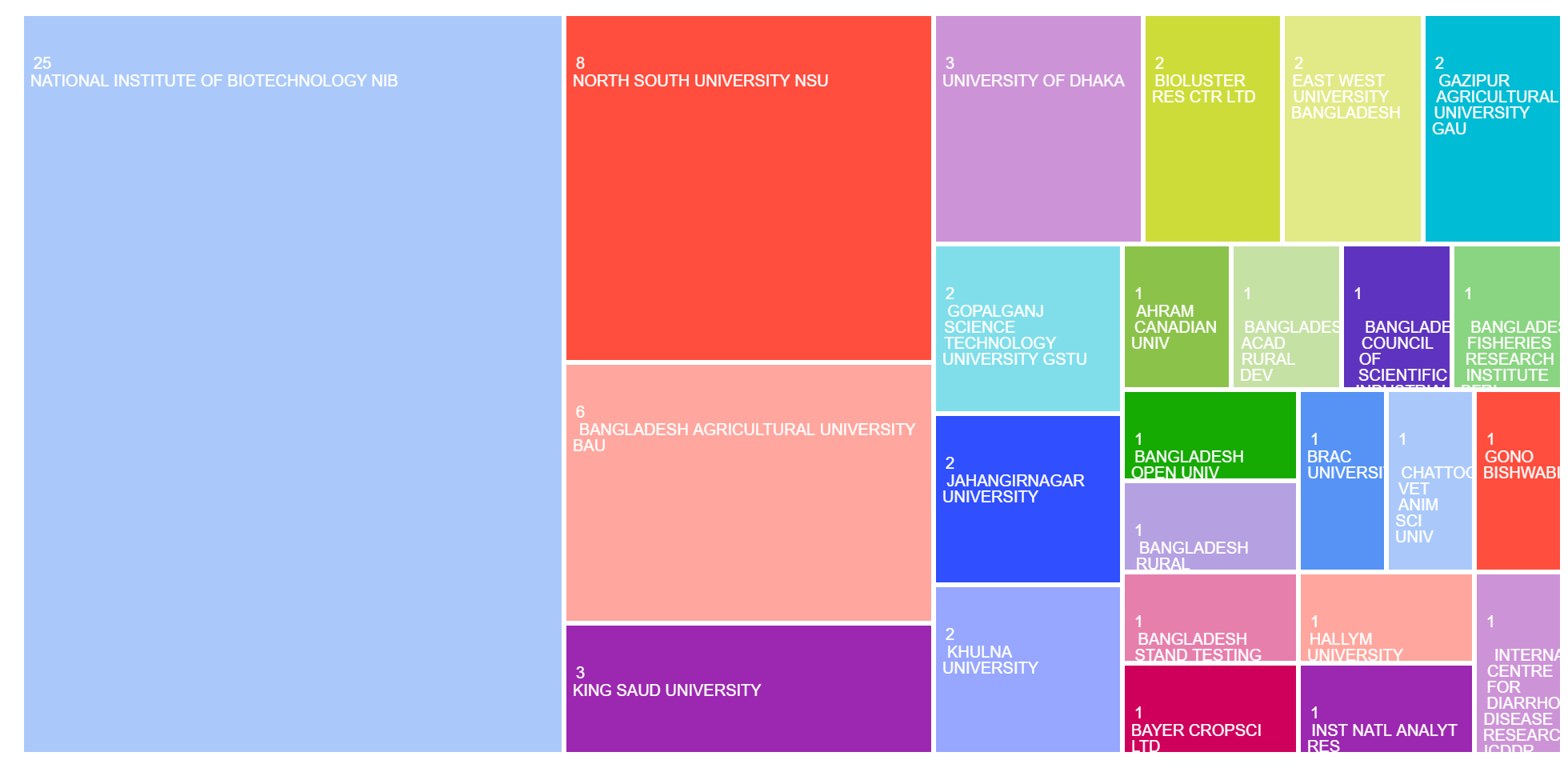
Research collaboration countries:
-
Bangladesh – 25 (100.000%)
-
Saudi Arabia – 3 (12.000%)
-
South Korea – 2 (8.000%)
-
Australia – 1 (4.000%)
-
Brazil – 1 (4.000%)
-
Egypt – 1 (4.000%)
-
Germany – 1 (4.000%)
-
Italy – 1 (4.000%)
-
Japan – 1 (4.000%)
-
Mongolia – 1 (4.000%)
Sustainable development goals:
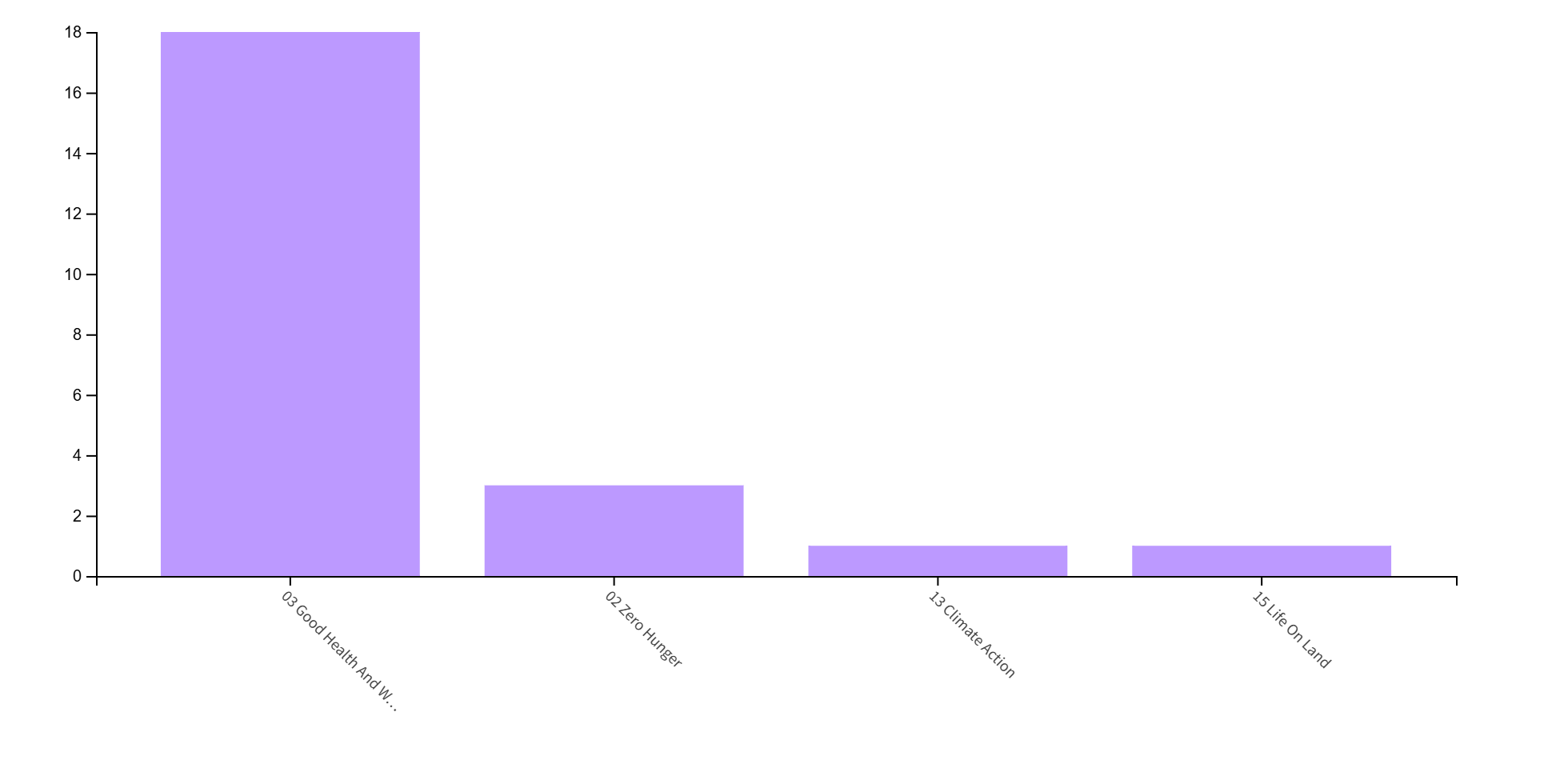
The publishers:
-
Elsevier – 9 (36.000%)
-
Amer Soc Microbiology – 3 (12.000%)
-
Nature Portfolio – 3 (12.000%)
-
Springer Nature – 3 (12.000%)
-
Mdpi – 2 (8.000%)
-
Frontiers Media Sa – 1 (4.000%)
-
Oxford Univ Press – 1 (4.000%)
-
Public Library Science – 1 (4.000%)
-
Sage – 1 (4.000%)
-
Univ Zagreb, Fac Agriculture – 1 (4.000%)
Web of Science Index:
| Index | Record Count | % of 25 |
|---|---|---|
| Science Citation Index Expanded (SCI-EXPANDED) | 17 | 68.000% |
| Emerging Sources Citation Index (ESCI) | 8 | 32.000% |
Funding Agencies:
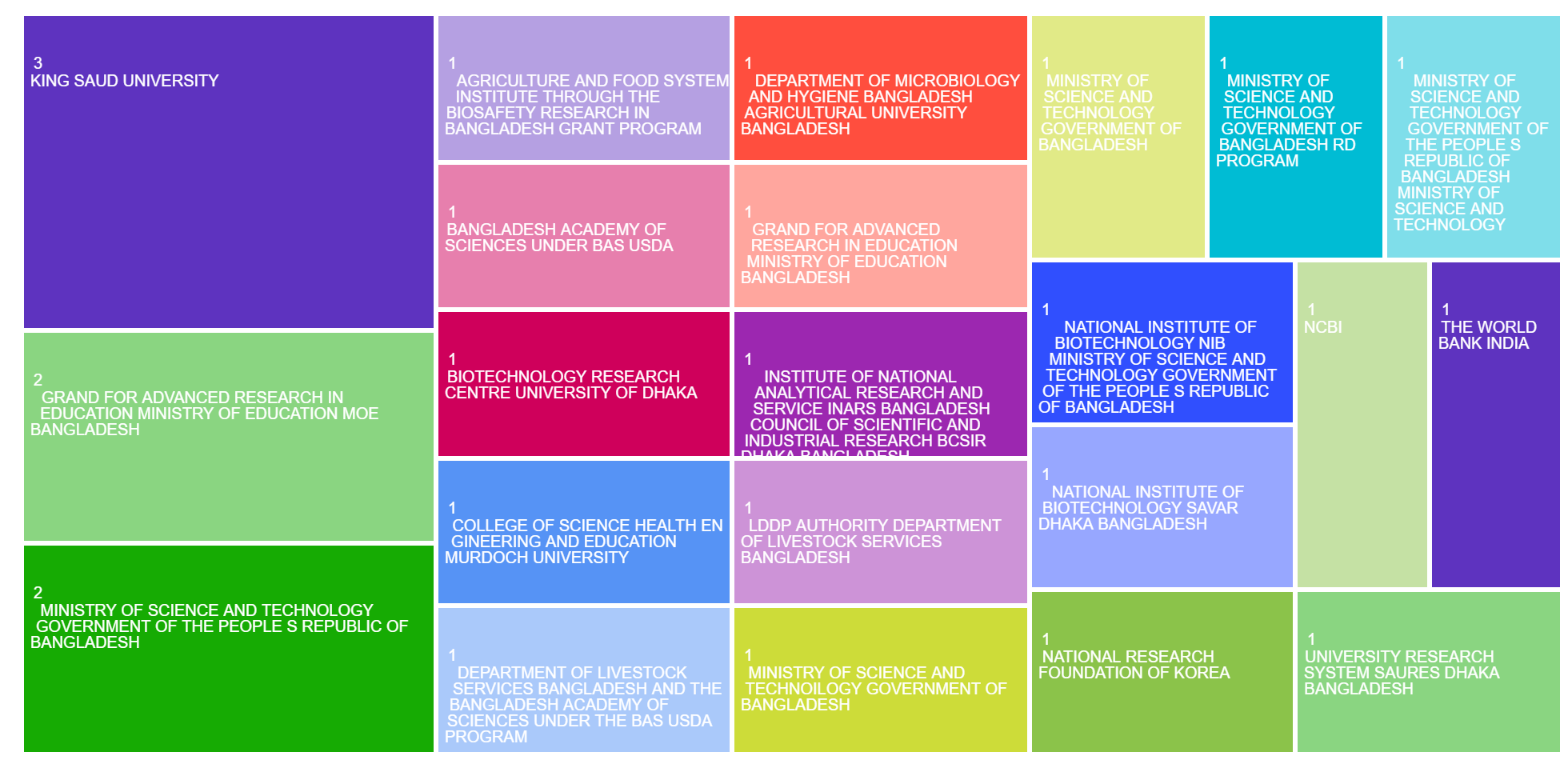
Research Highlights of NIB:
| Type | Result |
|---|---|
| Open Access | 19 |
| Enriched Cited References | 18 |
Observations:
-
NIB’s research demonstrates a proactive approach to combating antibiotic-resistant pathogens by identifying new therapeutic targets.
-
The institute’s exploration of the human gut microbiome across diverse ethnic groups provides valuable insights into population-specific health profiles.
-
Collaborations with high-impact journals like Heliyon and Communications Biology reflect the global relevance and recognition of NIB’s research efforts.
Questions:
-
What are the next steps for translating the identified therapeutic targets into clinical treatments?
-
How might the distinct gut microbiome profiles influence personalized nutrition and medicine in Bangladesh?
-
What strategies is NIB employing to foster further international collaborations and funding opportunities?
NIB’s 2024 research portfolio highlights its pivotal role in advancing biotechnology in Bangladesh. By addressing critical health issues through innovative studies, the institute not only contributes to scientific knowledge but also lays the groundwork for improved public health interventions.

